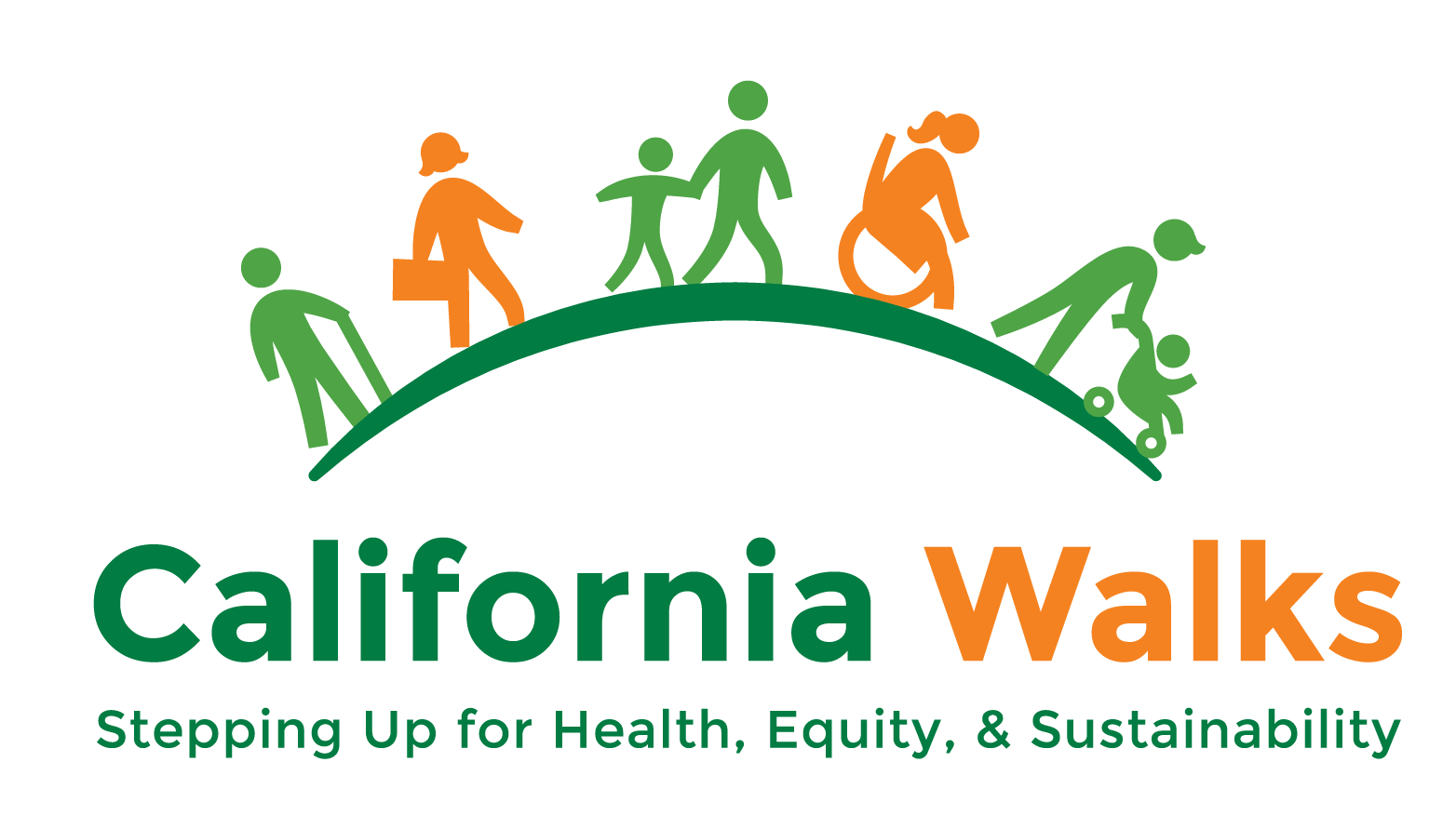Our 2020 Commitments in Practice
We’re three months into 2020 and deep into changes around the world and at Cal Walks. As we last wrote you, we’re rolling out our new commitment and approach to active transportation advocacy where we’ll be centering local communities’ needs in state policy, combating systemic racism, while continuing to push our traditional transportation policy work.
The COVID-19 pandemic is highlighting gaps in our social safety nets. Now more than ever, we need to be listening to and centering the needs of communities most at risk; not only in terms of the immediate impacts of the pandemic, but the long-term impacts and burdens of our societal and economic structure.
But how? And what does this look like in practice? Glad you asked! Here’s a run down of what we’ll be working on to put our values into practice this year. While the current pandemic may impact our in-person strategies, it doesn’t change our goal of creating safe and welcoming public spaces that allow everyone to thrive and exist in dignified ways.
Centering Local Communities
Cal Walks is committed to expanding and solidifying the state-local connection. Our work to create healthy communities where all people can thrive and exist starts locally. For the past several years, we’ve worked to support local communities through technical assistance, direct work with community groups and our Community Pedestrian and Bicycle Safety Training program. This year, we’re also partnering with Public Health Advocates in Stockton to support youth and community residents in working with the City to prioritize and invest in parks and Safe Routes to Parks. Consequently, we’ve talked with members in the Capitol about the importance of Safe Routes to Parks to help them understand their constituent needs.
This work has helped us support or oppose bills based on community interests and investments, as well as identify where state programs and policy are either advancing or inhibiting local needs. It has also allowed us to push for needed changes to ensure state policy and programs are in line with the values and needs of local partners. Furthermore, our local connections help shape program guidelines, such as the Active Transportation Program, which inform how applications are scored and ultimately, which projects get funded. We’re excited to expand our work with youth and local partners, and continue to support and advance the connection between local issues and our state efforts.
Combating Systemic Racism
Transportation planning has a long history of segregating communities through racist policies and practices. We’re actively calling out racial injustices that show up in the field of active transportation, including how communities are planned, and who has the power to make decisions for transportation spending.
Last year, we were excited to see Tamika Butler appointed to the California Transportation Commission. We were finally seeing the change we needed and the voices that were lacking on the Commission. While Tamika has already stepped down from the CTC and other allies like Joe Leyou, have been appointed, we are committed to do the work to ensure that strong leaders who understand the intersections of transportation, climate, health, and equity are informing our transportation planning and spending. Cal Walks, along with state and local partners are continuing to push appointments of individuals who can bring needed perspective and expertise to the Commission through letters to the Governor’s Office, as well as continuing to lift local voices and leaders to these positions.
Continuing in 2020, we’re also hosting roundtable discussions throughout the state on Emerging Transportation Technology, and tracking legislation on the subject. We’ve seen community voices be strategically left out of the emerging transportation technology conversations, especially low-income, Black, Indigenous, People of Color (BIPOC) communities, who already suffer the consequences of historical disinvestments. That’s why we’re meeting with local communities all throughout the state to highlight how emerging transportation technology, historical disinvestment, policing, racism, and classism will continue to hurt low-income and BIPOC communities the most. Our goal is to bring forth a unified stance on how to regulate the planning, implementation, and maintenance of transportation technology systems and to inform our collective steps in state, regional, and local decisions around emerging transportation technology.
Advancing our “Traditional” Transportation Policy Work
In 2019, we helped carry SB 127 (Wiener) Complete Streets for Active Living all the way to the Governor's desk. While the Governor ultimately vetoed the bill, we remain dedicated to advancing Complete Streets. In 2020, we will continue to work collaboratively with Caltrans, CalSTA, and local agencies to ensure that Complete Streets is given priority and implemented to help communities across the state navigate their hometowns and access jobs, education, and community needs. We hit the ground running during these first couple of months in 2020 by meeting with Caltrans Directors and participating in the CTC meeting in Sacramento to keep the needs of people that walk and bike at the center of transportation spaces. While in-person meetings are challenging during these times, we will push forward with online communications and strategies to hold our leaders accountable in these state spaces.
Our state set lofty goals for both mobility and climate. Yet, we have failed to reach those goals and in some instances, haven’t even gotten close. It’s time for our state to do more and do better. In 2020, we’ll be heavily engaged in the implementation of the Governors Executive Order N-19-19 to align transportation spending with our climate goals. We’ll also continue to push for better policies and processes that will help us reach our goals.
As we grow in our new internal leadership and continue to push for changes in the transportation sector, we hope you’ll join us on this transformational journey. To learn more about how you can support us and our work, visit our website or donate!
Esther Rivera
Interim Executive Director & Deputy Director


